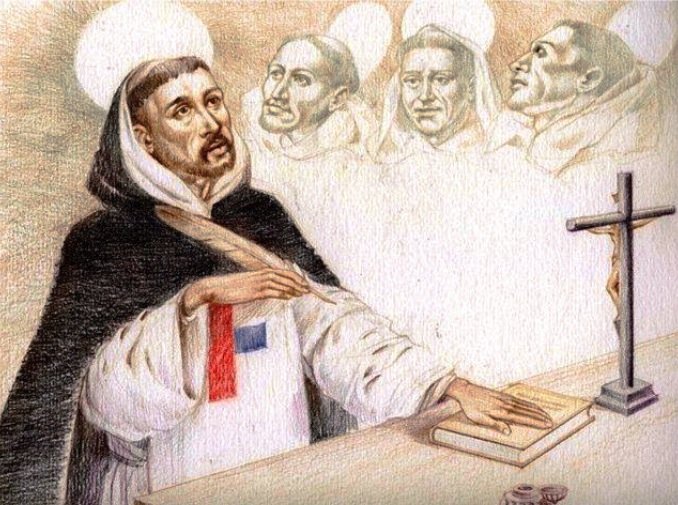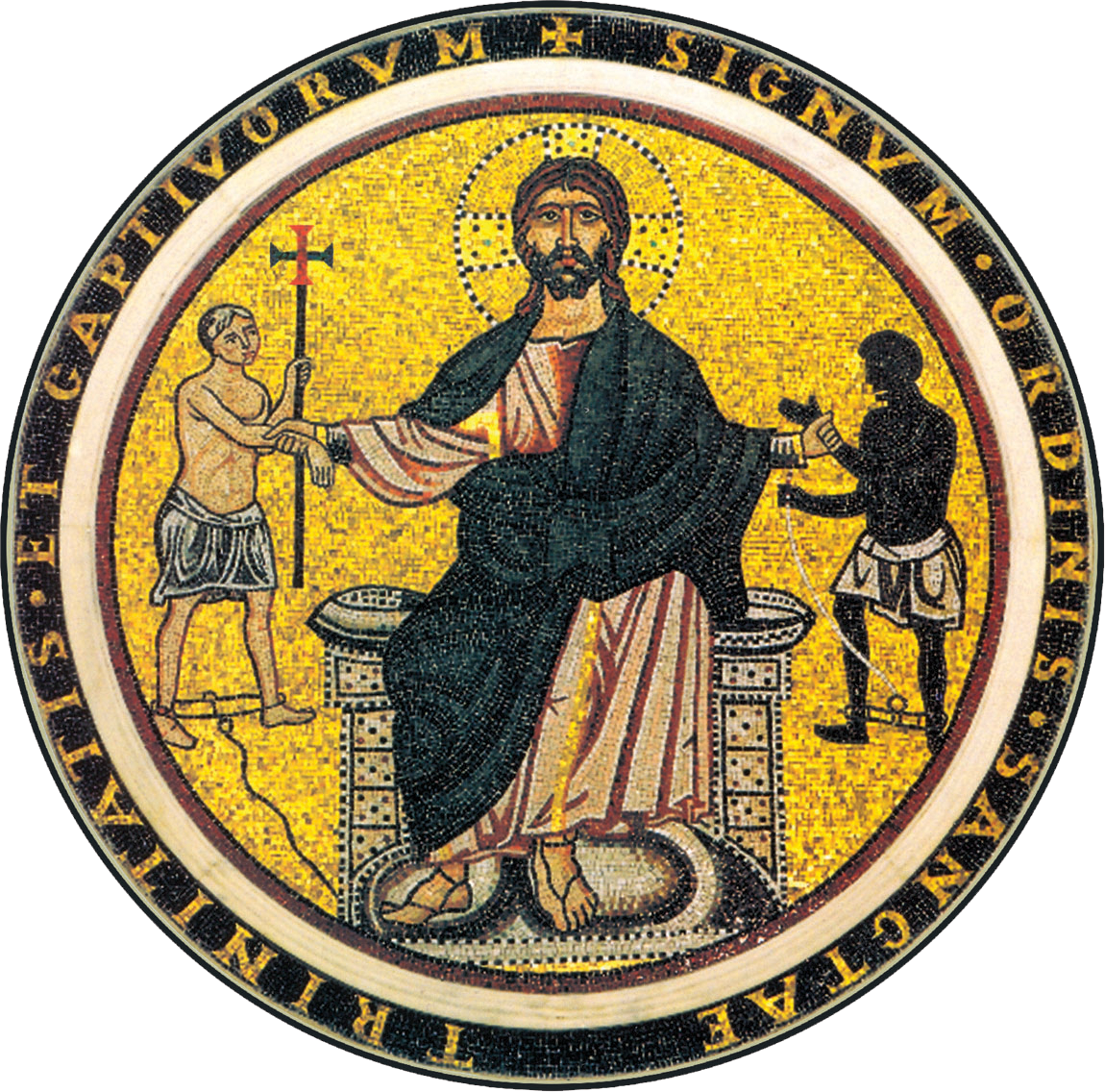An Order founded in 1193
Almost a thousand years of history! Between redemption and contemplation… of lives given in the name of the Most Holy Trinity!
An Order founded by the Frenchman St. John de Matha
The Order of the Most Holy Trinity (Trinitarians) is a religious family founded by the Frenchman John of Matha (1154-1213) with its own Rule, approved by Innocent III on December 17, 1198 with the bull Operante divine dispositionis. In the Church this is the first unarmed official institution dedicated to the service of redemption, armed only with mercy and with the sole intention of restoring hope in the faith to the brethren suffering under the yoke of slavery.John of Matha founds a new and original project of religious life, with deeply evangelical aspects, in the Church, linking the Trinity and the redemption of slaves: the Order is “Order of the Most Holy Trinity and of the Captives,” the houses of the Order are “houses of the Most Holy Trinity,” and the brothers of John of Matha are “brothers of the Most Holy Trinity.”
The Rule written by John of Matha, is the principle and foundation of the Trinitarian Order. Adapted from tradition over its eight hundred years, and especially from the spirit and work of the Reformer John Baptist of the Conception, the Rule finds form in the Trinitarian Constitutions approved by the Holy See.
Trinitarian tradition considers St. Felix de Valois the co-founder of the Order and companion of John of Matha in the desert of Cerfroid, located in the vicinity of Paris. The first Trinitarian community was established in Cerfroid, which is considered the “mother house” of the entire Order.
The Reformation of St. John Baptist of the Conception
The Order’s Reformation found implementation through the work of St. John Baptist of the Conception (1561-1613). The first community of barefoot Trinitarians is established in Valdepeñas (Ciudad Real – Spain). With the brief Ad militantes Ecclesiae (1599), Pope Clement VIII gave ecclesiastical validity to the “Congregation of the Reformed and Discalced Brothers of the Order of the Most Holy Trinity,” established to observe the Rule of St. John of Matha in all its rigor.
John Baptist of the Conception founded 18 convents of religious and one of cloistered nuns. He lives and transmits to his children a strong spirit of charity, prayer, gratitude, humility and penance, placing great emphasis on the need to keep alive the sympathetic delivery to prisoners and the poor. The relationship of Trinitarians to the Trinity, as the vital center and source of redeeming charity, is a central theme in his life experience and teachings.





